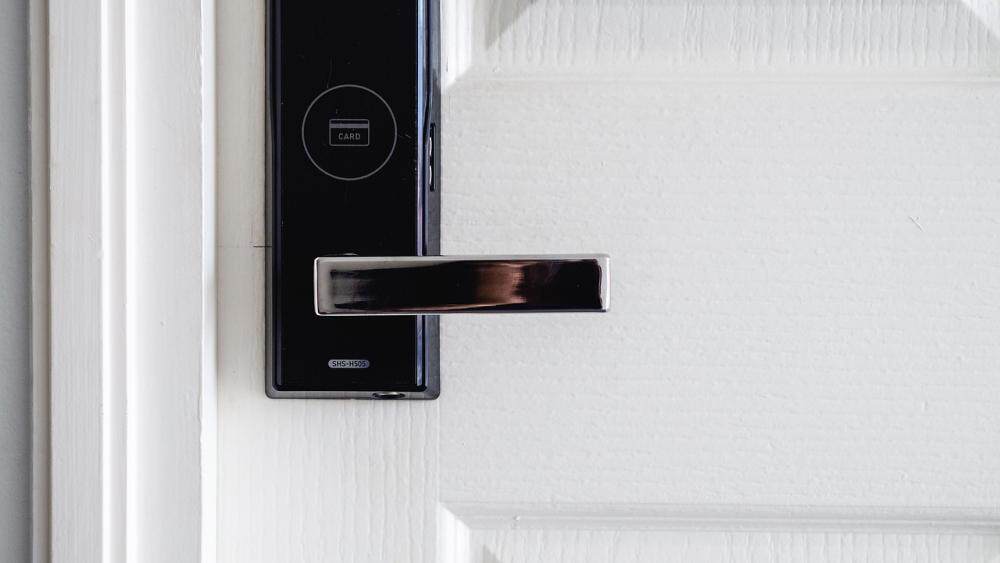Email format error
Email cannot be empty
Email already exists
6-20 characters(letters plus numbers only)
The password is inconsistent
Email format error
Email cannot be empty
Email does not exist
6-20 characters(letters plus numbers only)
The password is inconsistent

NEWS

Smart Lock vs Electronic Lock: What’s the Difference and Which One is Right for You?
In the age of rapid technological advancement, the way we secure our homes and offices has also evolved significantly. Traditional keys are gradually being replaced by more sophisticated systems, with smart locks and electronic locks leading the charge. But what exactly are these types of locks, and how do they differ? In this blog post, we’ll delve into the world of smart locks and electronic locks, comparing their features, benefits, and ideal use cases. By the end, you’ll have a clear understanding of which option might be the best fit for your needs.
Understanding Electronic Locks
Before diving into the comparison, let’s start by defining what an electronic lock is. An electronic lock, at its core, is a locking mechanism that operates electronically rather than mechanically. These locks use various forms of technology, such as keypads, card readers, or biometrics, to control access.
1. Keypads: One of the most common types of electronic locks is the keypad lock. Users enter a numeric code to unlock the door. This option eliminates the need for physical keys, reducing the risk of lockouts. However, users must remember the code, and frequent code changes may be necessary for security.
2. Card Readers: Electronic locks with card readers are often used in commercial settings. They require a key card or fob to unlock the door. This method is convenient for businesses where multiple employees need access but reduces the need for physical keys.
3. Biometrics: Biometrics is a cutting-edge technology used in some electronic locks. These locks require a fingerprint or retinal scan to unlock, offering a high level of security and convenience. However, they can be more expensive and may require maintenance to ensure accuracy.
Electronic locks offer several benefits, including enhanced security features like code expiration and audit trails. They also typically have a higher resistance to physical tampering compared to traditional locks.
Introducing Smart Locks
Smart locks represent an even more advanced category of electronic locks. While they share some similarities with electronic locks, smart locks often integrate with home automation systems and offer additional functionalities.
1. Connectivity: The key feature of smart locks is their ability to connect to the internet via Wi-Fi or Bluetooth. This connectivity allows users to control the lock remotely using a smartphone app. You can lock or unlock your door from anywhere in the world, making it highly convenient for managing access.
2. Integration with Home Automation Systems: Smart locks often work seamlessly with home automation systems. This means you can integrate them with other smart devices like security cameras, alarms, and lighting systems. For example, you can program your smart lock to unlock automatically when your smart doorbell detects your presence.
3. Keyless Entry Options: Like electronic locks, smart locks can offer keyless entry. However, they also provide additional methods such as virtual keys that can be shared with family or friends, and one-time access codes for service providers.
4. Remote Monitoring and Alerts: Many smart locks come with features that allow you to monitor activity remotely. You can receive notifications when someone enters or exits your home, providing peace of mind and enhancing security.
5. Voice Control: Some smart locks are compatible with voice assistants like Amazon Alexa or Google Assistant. This means you can unlock your door using voice commands, adding an extra layer of convenience.
Smart Lock vs Electronic Lock: The Comparison
Now that we have a solid understanding of both smart locks and electronic locks, let’s compare them in various aspects to help you decide which might be the best choice for your needs.
1. Convenience:
- Smart Lock: Offers superior convenience with remote control via smartphone apps and integration with home automation systems. You can also use voice commands and share virtual keys easily.
- Electronic Lock: Provides convenience through keyless entry, but often requires manual input of codes or physical cards.
2. Security:
- Smart Lock: Typically offers advanced security features such as remote monitoring, activity logs, and integration with other security systems. Some models provide biometric options for enhanced security.
- Electronic Lock: Generally secure, especially with features like code expiration and audit trails. However, it may lack the remote monitoring and integration capabilities of smart locks.
3. Installation and Setup:
- Smart Lock: Installation can be more complex, especially if integrating with existing home automation systems. However, many smart locks are designed for DIY installation.
- Electronic Lock: Often straightforward to install, especially if replacing a traditional lock. The setup usually involves configuring codes or cards.
4. Cost:
- Smart Lock: Typically more expensive due to advanced features and connectivity options. However, prices have been decreasing as technology becomes more accessible.
- Electronic Lock: Generally more affordable, but prices can vary based on features and technology.
5. Power Source:
- Smart Lock: Requires batteries or a power source to operate. Battery life can vary, and some models may offer a backup key option.
- Electronic Lock: Also requires batteries or a power source. Battery life tends to be longer, but it’s important to monitor battery levels to avoid lockouts.
6. Integration and Compatibility:
- Smart Lock: Often designed to integrate with home automation systems and other smart devices. Compatibility with voice assistants and other technologies can enhance functionality.
- Electronic Lock: Typically stands alone and may not offer the same level of integration with other smart home devices.
Choosing the Right Lock for You
When deciding between a smart lock and an electronic lock, consider your specific needs and preferences. Here are a few scenarios to help guide your decision:
1. Home Automation Enthusiasts: If you’re invested in smart home technology and want seamless integration with other devices, a smart lock is likely the better choice. The convenience of remote control and voice commands can enhance your overall home automation experience.
2. Budget-Conscious Buyers: If you’re looking for a cost-effective solution to enhance security without breaking the bank, an electronic lock offers many of the benefits of keyless entry and security features at a lower price point.
3. High-Security Needs: For those who prioritize advanced security features and remote monitoring, a smart lock provides additional layers of security that can be crucial for high-risk situations or for monitoring multiple access points.
4. Simplicity and Reliability: If you prefer a straightforward solution with fewer potential points of failure, an electronic lock may be the way to go. They are often reliable and easy to use, especially if you don’t need the added features of smart locks.
Conclusion
Both smart locks and electronic locks represent significant advancements in security technology, offering various benefits and features to suit different needs. By understanding the key differences and evaluating your own requirements, you can make an informed decision about which type of lock is best for you. Whether you choose the advanced connectivity and integration of a smart lock or the straightforward functionality of an electronic lock, upgrading your locking system is a step towards enhanced security and convenience.
